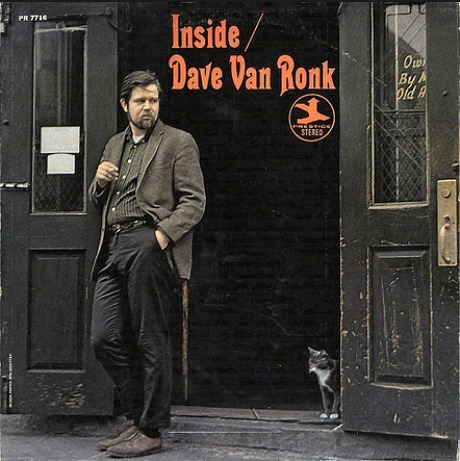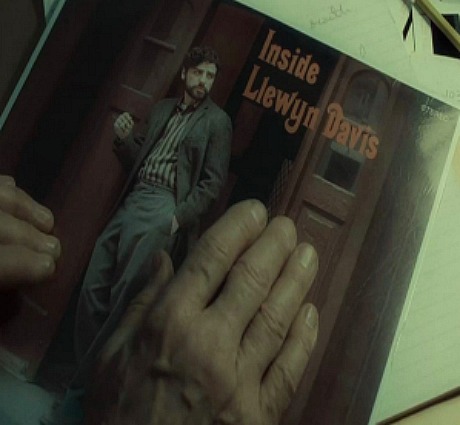For nearly two years I’ve been arguing against the thesis that Oscar Isaac‘s hapless folk singer in Inside Llewyn Davis is more or less based on old-time Greenwich Village folk singer Dave Van Ronk. And yet pretty much every movie journalist on the planet has gone along with the party line, largely because director-writers Joel and Ethan Coen mentioned the connection a year or so ago and haven’t disputed it since, and also because of a folk album Van Ronk recorded called Inside Dave Van Ronk. But a much more likely real-life model — certainly a musician who bears in hindsight a much greater resemblance to Isaac’s talented but morose, going-nowhere troubadour — is the late folk singer Paul Clayton.

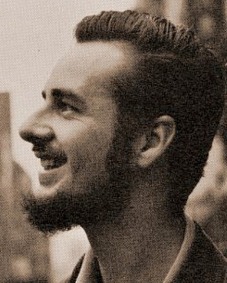
(l.) Oscar Isaac as the titular character in Inside Llewyn Davis; (r.) ’50s and ’60s folk singer Paul Clayton (1931 — 1967).
My friend Chance Browne, a Connecticut-based cartoonist and musician who hung with Van Ronk a bit in the old days and shot the shit with him a few times, shared this observation yesterday.
Born in 1931, Clayton was a folksinger and folklorist who researched the hell out of native folk singers and tunes. He was a tenacious scholar of this realm. Clayton joined Folkways Records in 1956, for whom he recorded six solo albums over a two-year period, and then recorded two more albums for Elektra Records in 1958 and ’59. Clayton collaborated with Van Ronk and Liam Clancy, and is described on his Wiki page as having been “a mentor and friend of Bob Dylan during the first years of Dylan’s career.” A song Clayton wrote was allegedly “borrowed” by Dylan in 1962 as the basis for “Don’t Think Twice, It’s All Right”.
The bio says Clayton was beset with personal problems in his mid 30s, including frustrations with his career, tensions over being a closeted homosexual, manic depression, drug abuse and a related arrest. Clayton’s last recording was in 1965. He killed himself in ’67, at age 36.
If you’ve seen Inside Llewyn Davis, you know the above description sounds much closer in terms of spirit, musical passion and downcast attitude to Isaac’s character, certainly more so than the personality and swagger of Dave Van Ronk. Much. Exclude Clayton’s closeted sexuality, the suicide and the scholastic devotion to folk music, and you’ve got a fairly close fit. The beard, the purist folk-music attitude, the albums cut in the ’50s followed by diminishing success, etc.
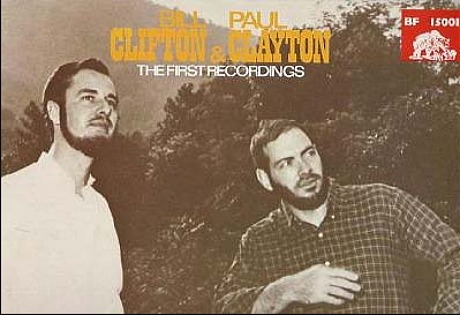
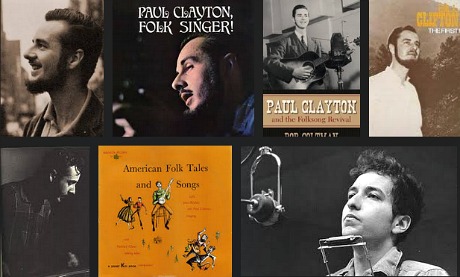
Here, again, is what I wrote about the differences between Van Ronk and Davis in March 2012: “The large, hulking Van Ronk got going as a Manhattan-based performer sometime in the mid ’50s. He was initially a jazz musician before shifting over to folk music. By the time the early ’60s rolled around he was fairly well ensconced in “the scene.” He gradually acquired a reputation as a big garrulous personality who knew everyone, and who had taken it upon himself to organize Village musicians so they wouldn’t be exploited by cafe owners who wanted to pay them zilch.
“Van Ronk was always a relatively minor, small-time figure in terms of fame and record sales, but he was heavily committed to folk music, to the West Village musician community, to his troubadour way of life and certainly to everything that was starting to happen in the early ’60s. If nothing else a man who lived large.”
“Llewyn Davis as created by the Coen bros. (and played by the relatively small-statured and Latin-looking Isaac) is a guy who lives and thinks small, and who’s no match for Van Ronk spiritually either. He’s glum and morose — a kick-around guy trying to make it as a folk musician but not much of a go-getter. He’s pissed-off, resentful, a bit dull. He can sing and play guitar and isn’t untalented, but he has no fire in the belly. Or not enough. Any way you slice it Llewyn Davis is not Van Ronk. Or at least, not in any way I was able to detect.”
Browne describes Van Ronk’s personality as “ascerbic…a guy who worked hard and was out there and found a level of success within in his own realm.” He says that Van Ronk told him way back when that Clayton wasn’t just a mentor to Dylan but “a little bit in love with him.”
